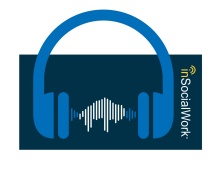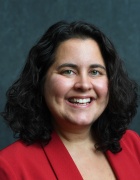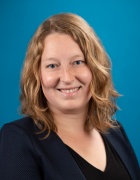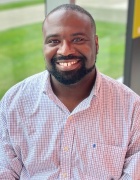Highlights
ON THE PODCAST

Social work and environmental justice
How can social workers connect the macro environment to our interventions? On a recent episode of inSocialWork®, MSW student Alisa Chirico discusses the intersection of environmental and social justice — and how social workers can be better change agents for those we serve.
“I can have a consciousness about how to be in the world, and I can bring that to my sessions with my clients, because all of my clients will be impacted by environmental issues.” — Alisa Chirico, a UB MSW student and landscape architect
GOOD NEWS
UB students take top honors
Several School of Social Work students won national and statewide recognition for their work this year.

Nicole Capozziello
PhD candidate Nicole Capozziello won a doctoral fellowship from the Grand Challenges for Social Work for her work on environmental racism in Buffalo. Her dissertation will explore the experiences of East Side residents and how they feel vacant lots could be better used.

Hannah Ginn
PhD candidate Hannah Ginn received the Doctoral Fellows Award from the Society for Social Work and Research. The award will support her dissertation, which examines how “capacity to sexual consent” policies limit the rights of women labeled with intellectual disability.

Tyrone Reese
MSW student Tyrone Reese was named Student of the Year by the New York State Education Association for his strong academic achievement and leadership in the program.
RESEARCH SPOTLIGHT
How language resources affect employment outcomes

Yunju Nam

Sarah Richards-Desai
Assistance from bilingual adults in a community increases the chances of employment for immigrant men who struggle with English proficiency — but does not play a similar role for women with the same language barrier, according to new UB School of Social Work research.
The study introduces the concept of “community-level language resources,” or the percentage of bilingual adults in a community among those speaking the same native language.
“This study calls attention to the importance of these community-level resources when developing policies for immigrant populations, like mandated language services and employment programs,” says Associate Professor Yunju Nam.
PhD candidate Sarah Richards-Desai added, “The gendered aspect of community language resources also indicates the need for gender-specific supports to promote immigrant women’s employment.”